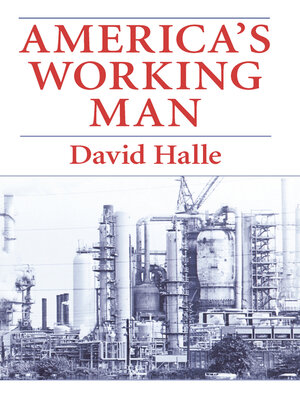America's Working Man
ebook ∣ Work, Home, and Politics Among Blue Collar Property Owners
By David Halle

Sign up to save your library
With an OverDrive account, you can save your favorite libraries for at-a-glance information about availability. Find out more about OverDrive accounts.
Find this title in Libby, the library reading app by OverDrive.



Search for a digital library with this title
Title found at these libraries:
| Library Name | Distance |
|---|---|
| Loading... |
“An unusually deep and wide-ranging study” by a sociologist who spent years listening to and living among workers at a New Jersey chemical plant (Journal of American Studies).
Over a period of six years during the late 1970s, at factory and warehouse, at the tavern across the road, in their homes and union meetings, on fishing trips and social outings, David Halle talked and listened to workers of an automated chemical plant in New Jersey’s industrial heartland—white, male, and mostly Catholic. He has emerged with an unusually comprehensive and convincingly realistic picture of blue-collar life in America during this era.
Throughout the book, Halle illustrates his analysis with excerpts of workers’ views on everything from strikes, class consciousness, politics, job security, and toxic chemicals to marriage, betting on horses, God, home-ownership, drinking, adultery, the Super Bowl, and life after death. Halle challenges the stereotypes of the blue-collar mentality and provides a detailed, in-depth portrait of one community of workers at a time when it was relatively affluent and secure.
“Absorbing reading.”—Business Week
Over a period of six years during the late 1970s, at factory and warehouse, at the tavern across the road, in their homes and union meetings, on fishing trips and social outings, David Halle talked and listened to workers of an automated chemical plant in New Jersey’s industrial heartland—white, male, and mostly Catholic. He has emerged with an unusually comprehensive and convincingly realistic picture of blue-collar life in America during this era.
Throughout the book, Halle illustrates his analysis with excerpts of workers’ views on everything from strikes, class consciousness, politics, job security, and toxic chemicals to marriage, betting on horses, God, home-ownership, drinking, adultery, the Super Bowl, and life after death. Halle challenges the stereotypes of the blue-collar mentality and provides a detailed, in-depth portrait of one community of workers at a time when it was relatively affluent and secure.
“Absorbing reading.”—Business Week







